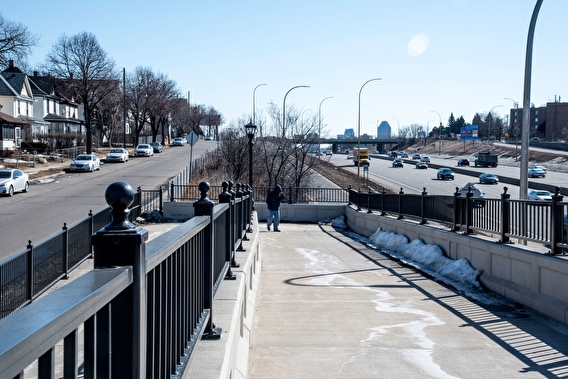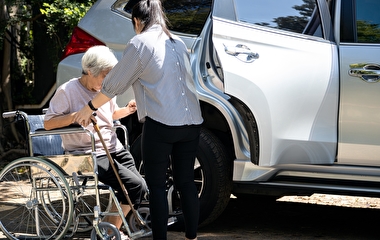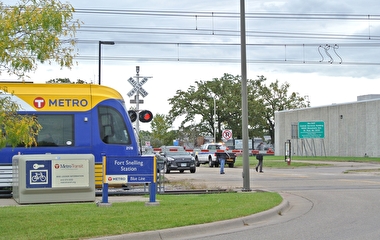
Some communities bear heavier scars from transportation decisions than others. Construction of freeways in the 1960s, for example, displaced thousands of homes and businesses, primarily in Black communities. In rural areas today, many residents face limited transit choices and accessibility.
MnDOT’s Advancing Transportation Equity Initiative, launched in 2017, incorporates equity into transportation decision making and aims to improve access and opportunities for underserved communities. As part of the initiative, a project team that included U of M researchers developed a two-day equity training program for MnDOT employees.
Agency employees across staff levels and disciplines—including policy, planning, programming, design, project delivery, maintenance, and engineering—make decisions that affect people every day. MnDOT wanted transportation equity concepts to be well understood and staff to have common tools and guidance.
“This training is an excellent start to helping MnDOT employees understand how their day-to-day decisions can have a lasting impact in communities and build their capacities for advancing an equitable transportation system,” says Abdullahi Abdulle, who was MnDOT’s transportation equity planning coordinator while the project was underway and served as the project’s technical liaison. He founded and is now CEO of Humanize MN.
The project team, which included representatives from varied organizational backgrounds and perspectives, first focused on identifying relatable stories to illustrate and explain transportation equity issues. Then researchers conducted a literature review of general equity studies, equity in planning, and disparate impacts on communities as background for developing a comprehensive transportation equity training curriculum.
The principal investigator for the U’s work was Frank Douma, director of state and local policy with the Institute for Urban and Regional Infrastructure Finance in the Humphrey School of Public Affairs. Co-investigators included Humphrey School professors Yingling Fan and Samuel Myers.
The training content included historical and foundational information, definitions, and case studies about transportation equity from multiple perspectives. “It demonstrated how transportation decisions can result in disparate impacts across specific demographics,” Douma says.
A virtual pilot training was offered to 38 participants; a shorter “Executive Training Session” for 17 agency leaders produced feedback and suggestions to improve the program.
“The depth of material, guided small-group discussions, and time for reflection helped MnDOT employees understand equity concerns, why they matter, and what employees can do,” Douma notes.
In addition to the training materials, the project team created a two-page handout on transportation equity that covered historic drivers and descriptions of impacts of racial, geographic, disability, and age inequities. Finally, the team produced MnDOT Transportation Equity, a publicly available summary video that highlights the issues and concepts discussed throughout the project from a variety of perspectives.
The training helps MnDOT implement ADA and environmental justice efforts and augments Office of Equity and Diversity training, says Hally Turner, director of policy planning with MnDOT’s Office of Planning & Programming. “Equity in transportation goes beyond individual needs,” Turner says. “This training expands MnDOT’s offerings to help address systemic barriers to ensure everyone benefits.”
Demand for the training far exceeds its level of support, Turner says, and there is interest in reformatting it to make it more sustainable for wider delivery. Next steps include updating the content and delivering up to six training sessions this year.
CTS has contributed to the Advancing Transportation Equity Initiative in multiple ways, including through research led by Yingling Fan (Improving Transportation Equity for All by Centering the Needs of Marginalized and Underserved Communities; Advancing Transportation Equity Research & Literature/Program Review) and a CTS Education and Engagement Council meeting on May 6.
—Pam Snopl, CTS senior editor


